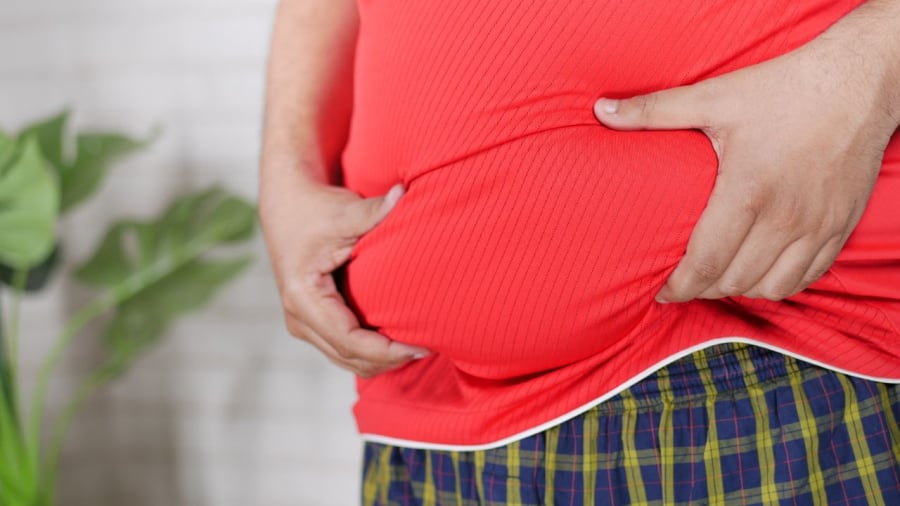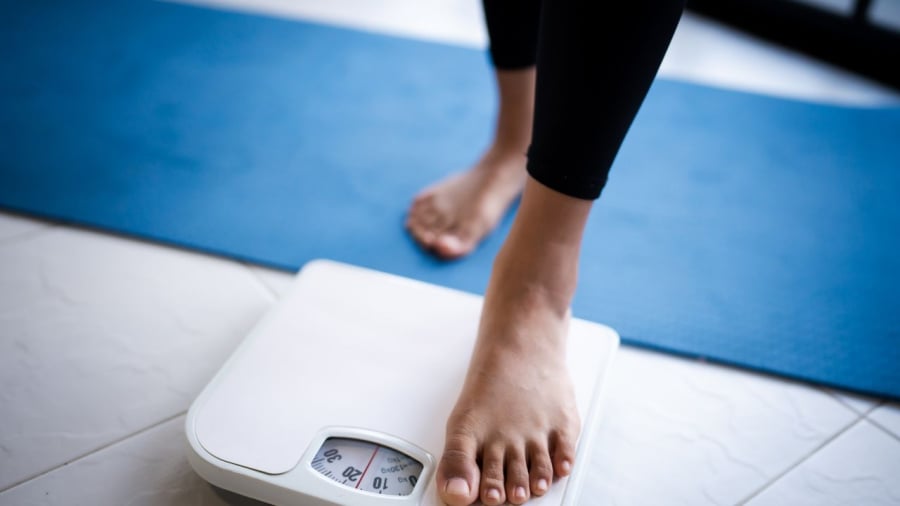Many people complain that they eat very little yet still gain weight, or that they fast but their weight remains unchanged. This is a common issue, especially for adults or those over 30. So, why does this happen and is there an effective solution to counter it? The following article will explore the underlying reasons and suggest appropriate, scientific methods to help you regain your figure.
1. Why Do People Gain Weight When They Eat Less?
In reality, it’s not just people who eat a lot that struggle with obesity. This is because weight gain is not solely determined by nutrition but also by other factors such as:
1.1. The body enters a state of “hibernation”: When you fast or eat very little for an extended period, your body automatically adjusts to cope with the lack of energy. The metabolic process slows down to conserve energy for survival. At this point, even with a reduced diet, you won’t burn many calories. Moreover, the body tends to store fat in preparation for the next “fast,” leading to weight gain or difficulty in losing weight.

1.2. Hormonal imbalance: Hormones play a crucial role in controlling hunger, satiety, and fat accumulation. If you experience hormonal imbalances, especially with insulin, leptin, and cortisol, you may gain weight even when eating less. For instance, high insulin levels due to stress or lack of sleep can lead to abdominal fat accumulation.
1.3. Lack of physical activity: You may eat less, but if you also sit a lot, remain sedentary, and don’t burn calories, your body will store the excess energy as fat. As a result, your weight may stay the same or even increase.
1.4. Poor sleep quality: Sleeping less or not deeply enough increases cortisol levels, a stress hormone that stimulates fat storage, particularly abdominal fat. Additionally, insufficient sleep reduces leptin (the hormone that signals fullness) and increases ghrelin (the hunger hormone), making you more prone to overeating even when you don’t need the extra calories.
1.5. Unsuitable food choices: Many people think that eating less is enough, but they don’t pay attention to the quality of the food they consume. The diet may be small, but if it’s rich in refined carbohydrates (such as white bread, instant noodles, diet soda…), it can lead to rapid spikes in blood sugar and fat accumulation.

2. How to Lose Weight Effectively in This Situation?
If you find yourself in a situation where you’re not eating much but still gaining weight, try implementing these scientific solutions:
2.1. Eat sufficiently, properly, and regularly:
Instead of fasting, develop a nutritious diet with the following guidelines:
- Increase your protein intake from fish, eggs, lean meat, and tofu.
- Consume more fiber from green vegetables and less sweet fruits.
- Reduce refined carbohydrates and replace them with complex carbohydrates like oatmeal and brown rice.
- Drink enough water (1.5 – 2 liters/day).
- Divide your meals into smaller portions throughout the day (3 main meals and 1-2 snacks) to maintain stable blood sugar levels and reduce hunger.
2.2. Engage in light daily exercises:
You don’t have to go to the gym and exert yourself, but you should maintain some level of activity, such as:
- Walking briskly for 30 minutes a day.
- Practicing yoga or pilates, or following home workout routines.
- Opting for natural movements: taking the stairs instead of the elevator, standing instead of sitting for prolonged periods.
2.3. Get enough sleep and reduce stress:
Sleep plays a pivotal role in weight loss. Aim for 7-8 hours of sleep each night and avoid staying up late. Additionally, practices like meditation, deep breathing, or other stress-reducing activities can help regulate hormones that influence fat storage.
2.4. Monitor your body instead of just focusing on weight:
Many people get discouraged when the scale doesn’t budge, but in reality, they may have lost fat and gained muscle. Use a measuring tape for your waist, pay attention to how your clothes fit, or take periodic photos to track your physical changes.
2.5. Consult a doctor if necessary:
If you’re eating healthily and exercising regularly but still experiencing unusual weight gain, consider getting a general health check-up. You may have issues with your thyroid, hormones, or insulin resistance, all of which can directly impact your weight.
The phenomenon of “eating less but still gaining weight” is not merely about calorie intake. It’s also influenced by the body’s metabolism, hormones, sleep, and level of physical activity. To lose weight effectively, a comprehensive and sustainable strategy is necessary, rather than harsh fasting regimens. Listen to your body, eat intelligently, sleep sufficiently, and stay active—these are the keys to successful weight loss.






























